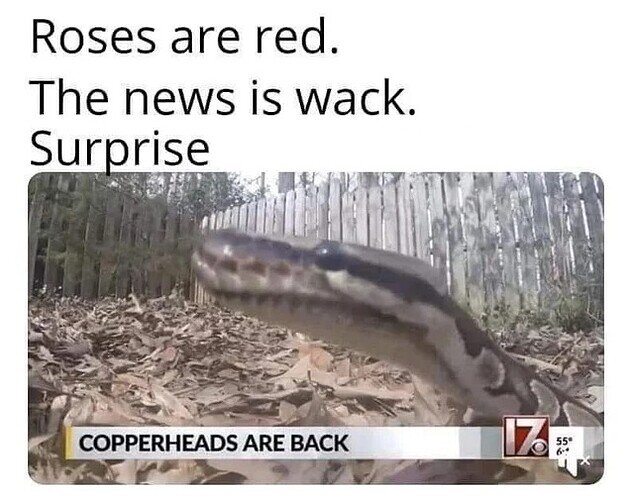I don’t know if i can agree with that. There are no mistakes in this industry there’s too much at stake. The crimes that were discussed in this article involve improper and unlicensed keeping, unlicensed sale, and even release of venomous reptiles in Florida, which is already struggling with invasives and harmful/ignorant legislation that is impacting way more than just Florida. If it were “oh, you moved to an area where your pets were illegal, oops!” it would be another thing entirely. But anyone that’s involved enough in this community to know that MorphMarket exists is involved enough to know that, that behavior is 100% against worldwide herp community standards. So that’s to say that at some point there was a thought process there that disregarded the passion, hard work, and already slipping legal rights of every herp and keeper out there. That’s not the kind of person i want to see active in my community. And COMPETES slipped by waay to close to me last year for me to not feel strongly about this.
We’re talking about self-policing which is hard, but painfully lacking right now. The general public will always see responsible keepers no different from the rubbish. But drawing that line in the sand ourselves and enforcing it can make the difference clear in the long run. I see the point about banning outright driving people to more backdoor methods of purchase and sale, and yet I don’t entirely believe those avenues weren’t already on the table for those individuals to begin with. If they’re shady enough to disregard basic herp common sense, then what’s stopping them in the first place? If someone wants to move venomous reptiles in a restricted area, and/or doesn’t want to go through all of the hoops to get a license to own legally, then they are gonna buy/sell through those avenues regardless. All that allowing them to participate on MorphMarket unrestricted after being convicted of those crimes is doing is affiliating us with them. If you look at that from an outsider’s perspective, then what truly is the difference between a responsible keeper and a criminal? I wouldn’t blame the wider public for assuming there isn’t one.
At very least, like a felon will still have consequences post sentence, like being less likely to get a job, voting restrictions, loosing their second amendment rights to own a firearm, a keeper convicted of animal crimes should have similar lasting consequences. Maybe like a flag on their account that’s visible to anyone potentially looking to buy/sell to the individual. Also, being put onto a registry of individuals convicted of animal crimes (possibly with details of what crime was committed) for all to see. They’re technically still allowed to be on MM but their likelihood of being able to buy or sell any animal on the platform (or anywhere else) will be severely affected for the rest of their lives. It will then be up to the community themselves to decide on a case by case basis wether or not they choose to do business with that person depending on the severity of their crimes. And if the criminal has changed, they’ll have to work hard to prove it.
(Also putting flags on accounts of known convicts can help buyers make more informed decisions/feel safer shopping responsibly on MM.) Although it would not substitute for regular seller research, it would bring attention to information that a seller or buyer would want to know before making a decision on a purchase, that they may never even know about otherwise.
A system like this proves that the community means business which is what can really deter someone from going rogue. It also enforces our dedication to animal welfare and responsible keeping/conduct in the eyes of non herp society. Which could do wonders for our legitimacy as animal lovers and thusly our animal rights as a whole in the political eye. And it’s not like we would be listing individuals for anything we didn’t like. All those receiving the consequences would be legally guilty of crimes punishable in the US.
The bottom line for me is, we work too hard to educate, break down stereotypes, and retain basic rights, to fail to hold our own to the standards we wish to be associated with by the rest of the world.
